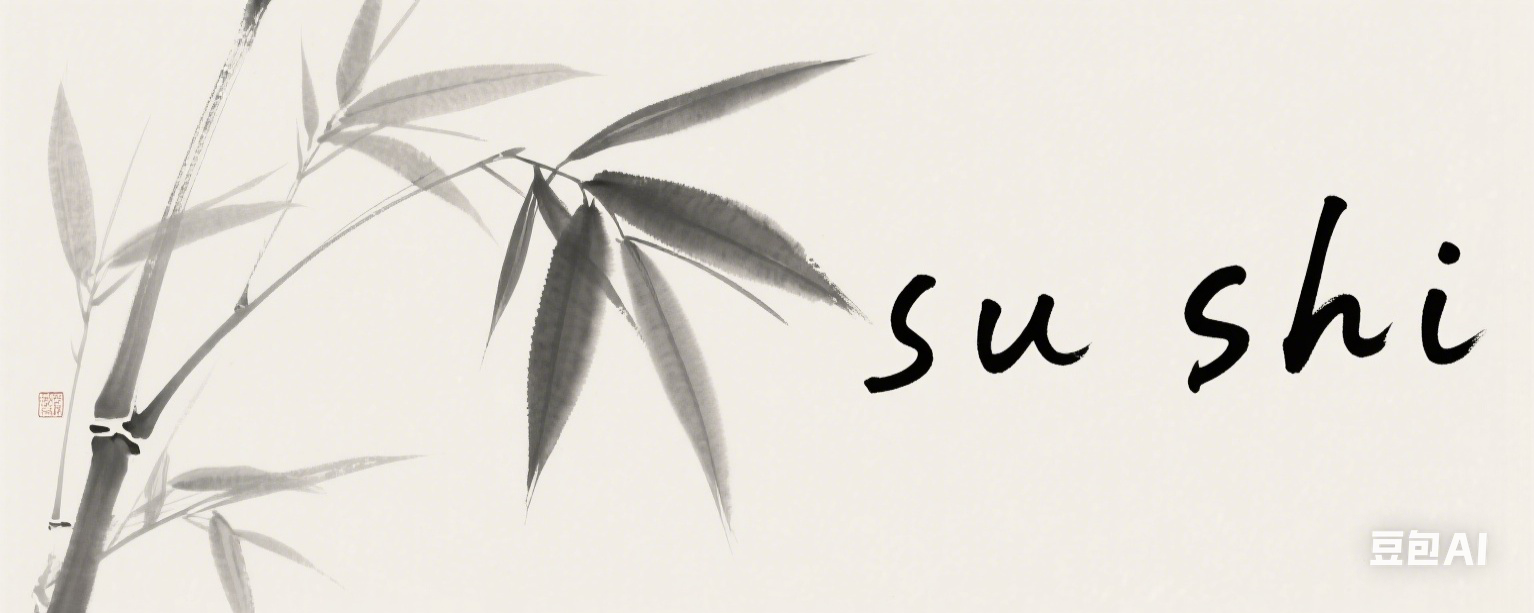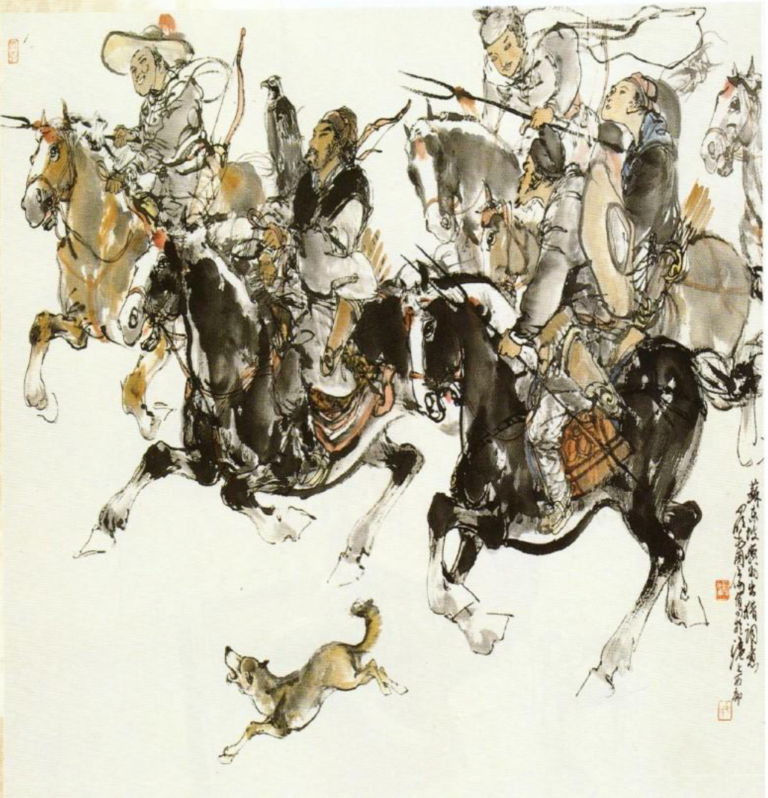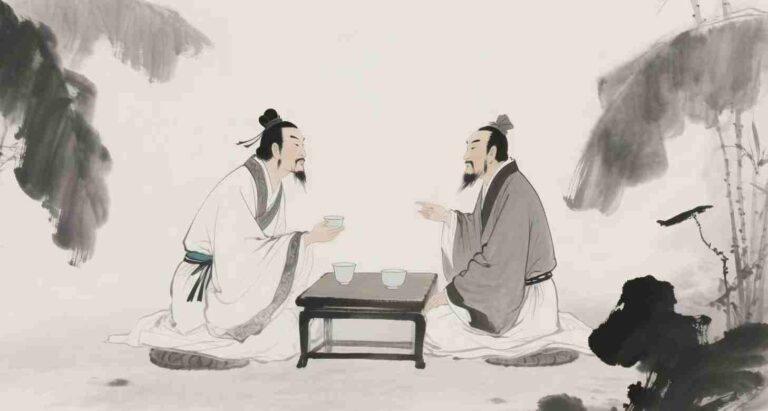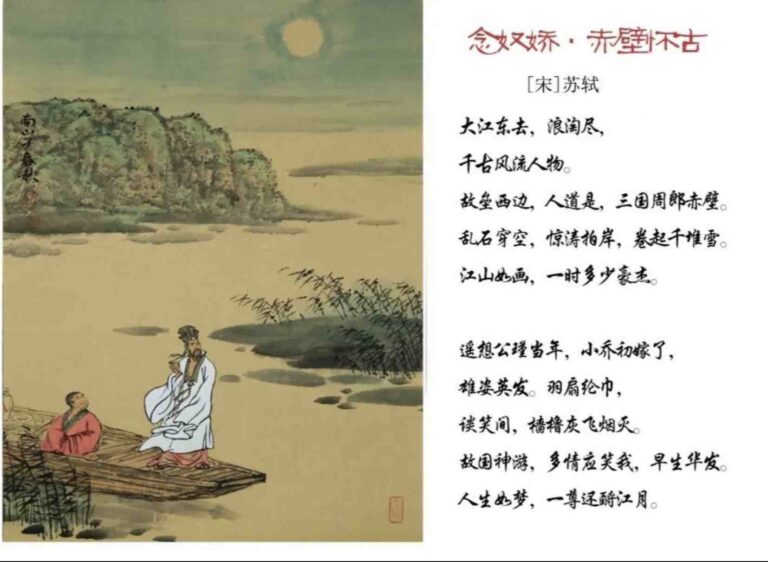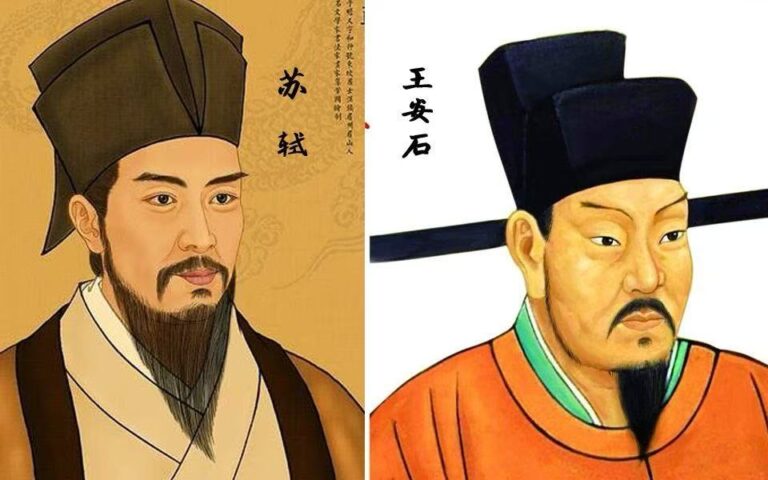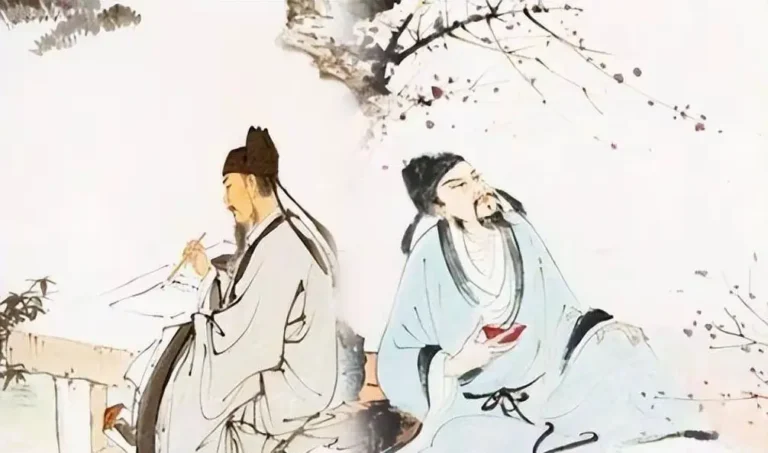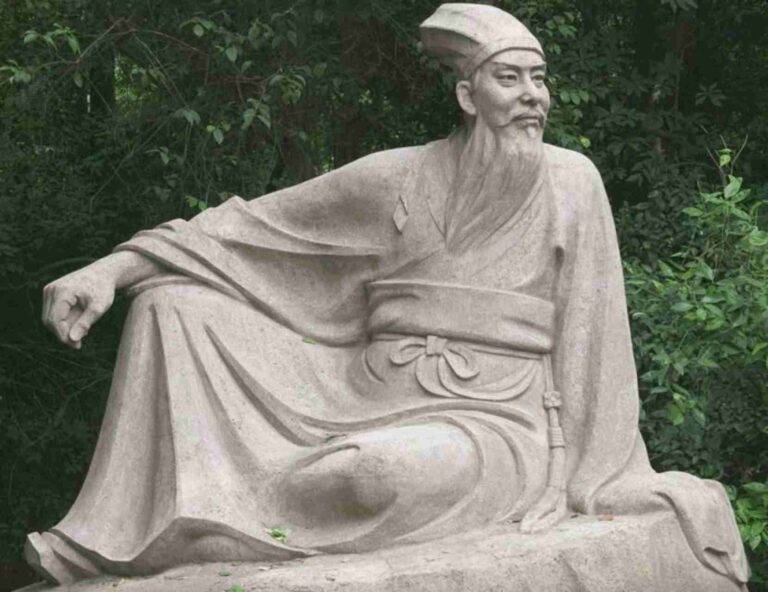“Prelude to Water Melody” Poetry Appreciation
I. Original Poem
“Prelude to Water Melody” – How Long Will the Full Moon Appear?
(Written on the Mid-Autumn Festival of 1076, after drinking all night, drunk. Dedicated to Ziyou—Su Shi‘s younger brother.)
How long will the full moon appear?
I raise my wine cup to ask the blue sky.
I do not know what time of year
It would be tonight in the celestial palace on high.
Riding the wind, I would fly there,
Yet I fear the jade and crystal towers would be
Too high and cold for me.
Dancing with my moonlit shadow,
It does not seem like the human world.
The moon rounds the crimson tower,
Stoops to silk-pad doors,
Shines upon the sleepless.
Bearing no grudge,
Why does the moon tend to be full when people part?
People may have sorrow or joy, be near or far apart,
The moon may be dim or bright, wax or wane,
This has been going on since the beginning of time.
May we all be blessed with longevity,
Though thousands of miles apart, we can share the beauty of the moon together.

II. Background of the Poem
This poem was composed during the Mid-Autumn Festival in 1076 when Su Shi was serving as the governor of Mizhou (modern-day Zhucheng, Shandong). The preface explains the context: “On the Mid-Autumn Festival of 1076, I drank joyfully until dawn, got drunk, and wrote this poem while thinking of Ziyou.” Ziyou refers to Su Shi’s younger brother, Su Zhe, who was serving in Qizhou (modern-day Jinan) at the time. The brothers had not seen each other for seven years.
This period coincided with Wang Anshi‘s political reforms, and Su Shi, disagreeing with the reformists, had voluntarily exiled himself from the capital. Frustrated by unfulfilled political ambitions and separated from loved ones, Su Shi poured his reflections on life and longing for family into this timeless masterpiece.
III. Artistic Features
1. Fusion of Romanticism and Realism
The first stanza showcases Su Shi’s extraordinary imagination: “How long will the full moon appear? Wine cup in hand, I ask the blue sky.” The opening lines immediately transport readers into a mystical realm. “I do not know what time of year it would be tonight in the celestial palace on high” expands this imaginative space, while “Riding the wind, I would fly there” expresses a desire to transcend earthly troubles.
However, Su Shi ultimately embraces reality: “Yet I fear the jade and crystal towers would be too high and cold for me.” This line marks a turning point, acknowledging that while the mortal world is imperfect, it holds warmth and beauty. “Dancing with my moonlit shadow, it does not seem like the human world” affirms the value of earthly existence.
2. Emotional Undulations
The poem’s emotional journey is rich and dynamic:
- The bold opening question
- Yearning for the celestial realm
- Nostalgia for the human world
- Loneliness under the moonlight
- Confusion over the moon’s fullness amidst human separation
- Final philosophical acceptance
These shifts reflect Su Shi’s complex inner world.
3. Exquisite and Concise Language
Su Shi’s diction is natural yet profound:
- “The moon rounds the crimson tower, stoops to silk-pad doors, shines upon the sleepless” vividly depicts the moon’s movement and the poet’s insomnia.
- “People may have sorrow or joy, be near or far apart; the moon may be dim or bright, wax or wane” presents a symmetrical and philosophical observation.
- “May we all be blessed with longevity, though thousands of miles apart, we can share the beauty of the moon together” has become an immortal blessing.
IV. Philosophical Interpretation
1. Profound Reflections on Life
Through the moon’s phases, Su Shi perceives the impermanence of life. “People may have sorrow or joy, be near or far apart; the moon may be dim or bright, wax or wane—this has been going on since the beginning of time” captures the universal human condition while demonstrating his optimistic outlook.
2. Conflict Between Transcendence and Engagement
“Riding the wind, I would fly there” reflects Daoist transcendence, while “Yet I fear the jade and crystal towers would be too high and cold for me” embodies Confucian engagement with the world. Su Shi harmonizes these philosophies into a unique worldview.
3. Sincere Expression of Brotherhood
Though filled with philosophical musings, the poem was originally written for Su Zhe. “May we all be blessed with longevity, though thousands of miles apart, we can share the beauty of the moon together” is both a universal wish and a personal message, revealing Su Shi’s tender humanity.
V. Historical Significance and Influence
“Prelude to Water Melody” is hailed as the greatest Mid-Autumn poem. Song Dynasty critic Hu Zai remarked, “Since Su Shi’s ‘Prelude to Water Melody’ appeared, all other Mid-Autumn poems pale in comparison.”
Its legacy includes:
- Becoming a cultural symbol of the Mid-Autumn Festival
- “Share the beauty of the moon together” becoming a classic allusion for expressing longing
- Its optimistic philosophy inspiring generations
VI. Modern Relevance
Su Shi’s worldview in this poem remains instructive today:
- Wisdom in adversity – Acknowledge life’s imperfections while cherishing existence.
- The value of emotion – Treasure genuine bonds like family and friendship.
- The art of balance – Find equilibrium between ideals and reality.
- An open-hearted mindset – Embrace life’s fluctuations with equanimity.
Conclusion
Su Shi’s “Prelude to Water Melody” has endured for nearly a millennium due to its artistic brilliance and philosophical depth. More than just a beautiful poem, it is a spiritual legacy that offers wisdom for modern living. Every Mid-Autumn Festival, reciting this work allows us to connect with Su Shi’s undying poetic soul.
